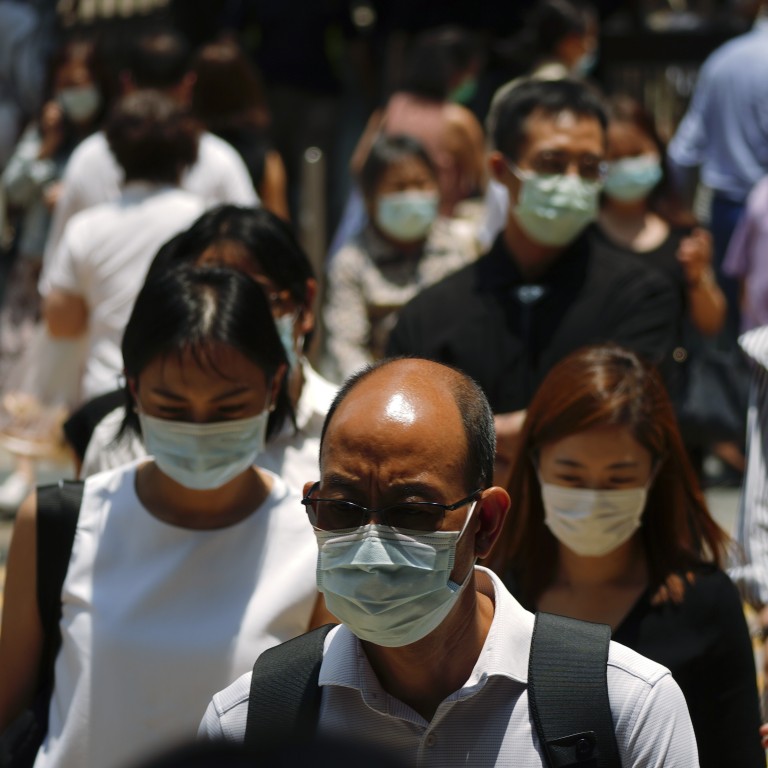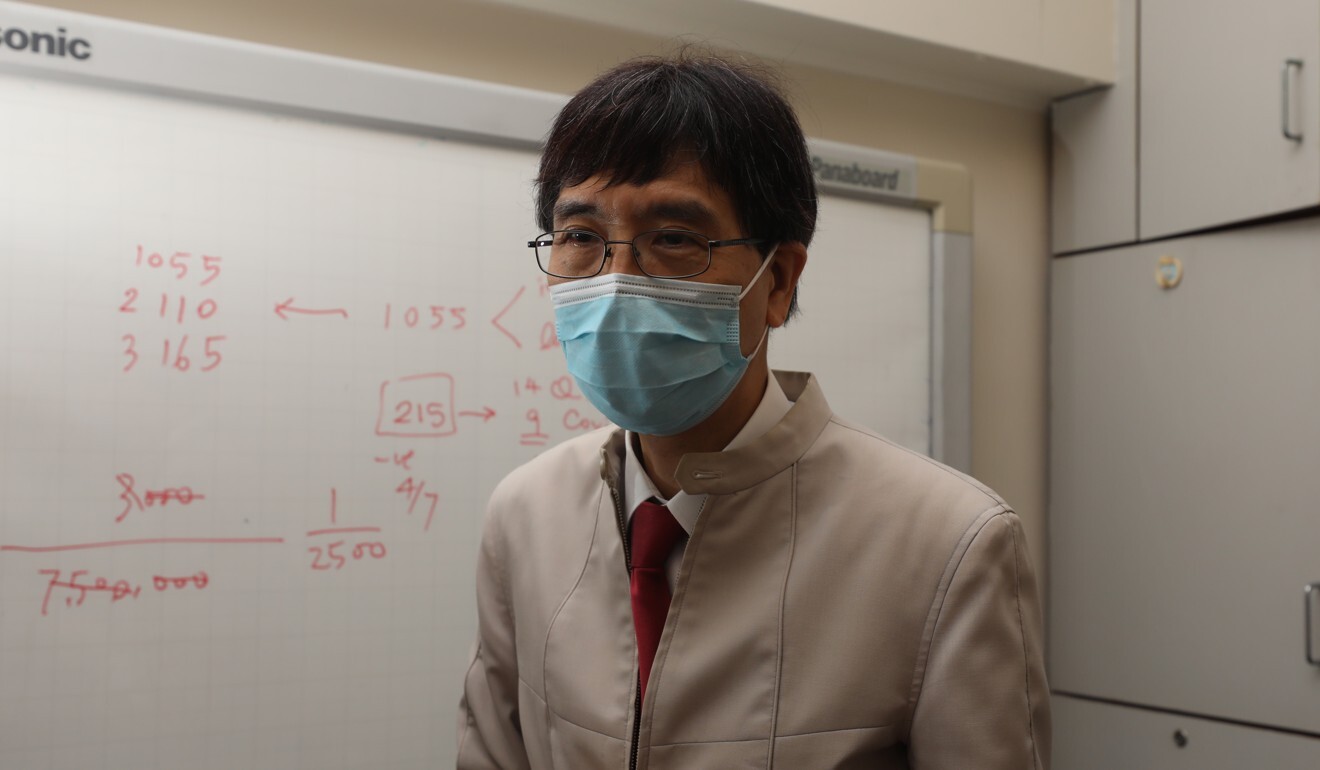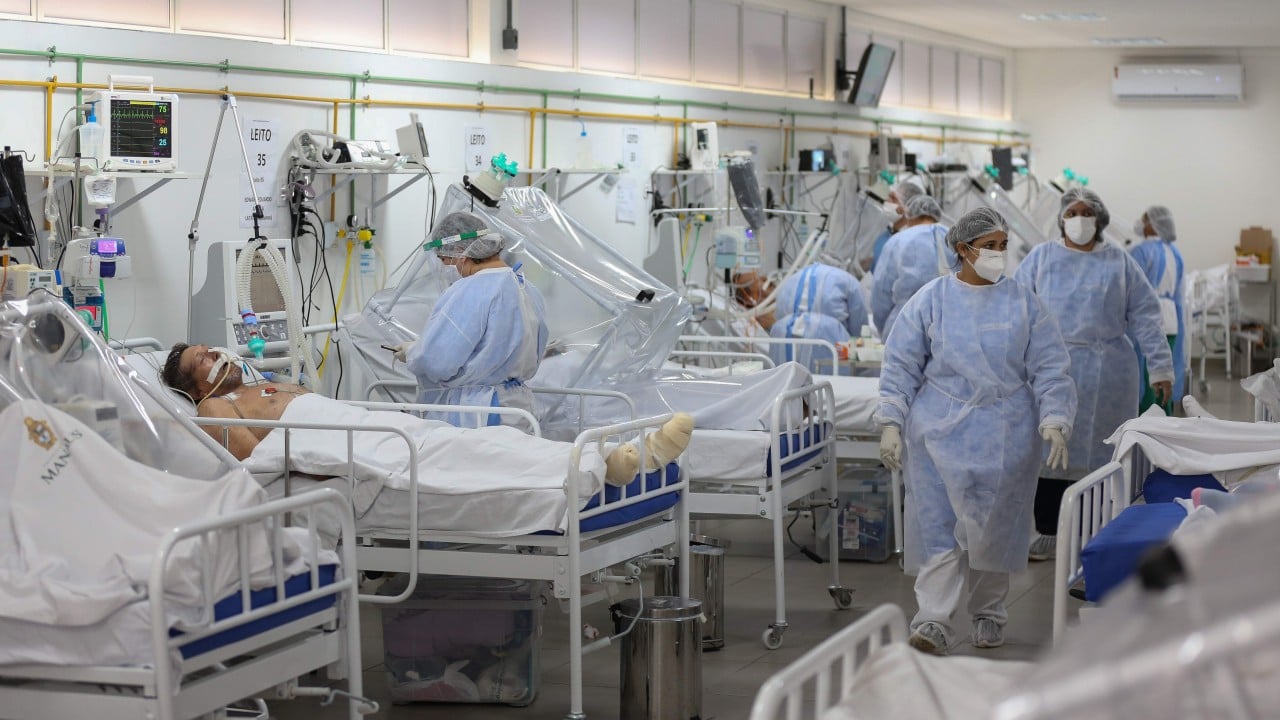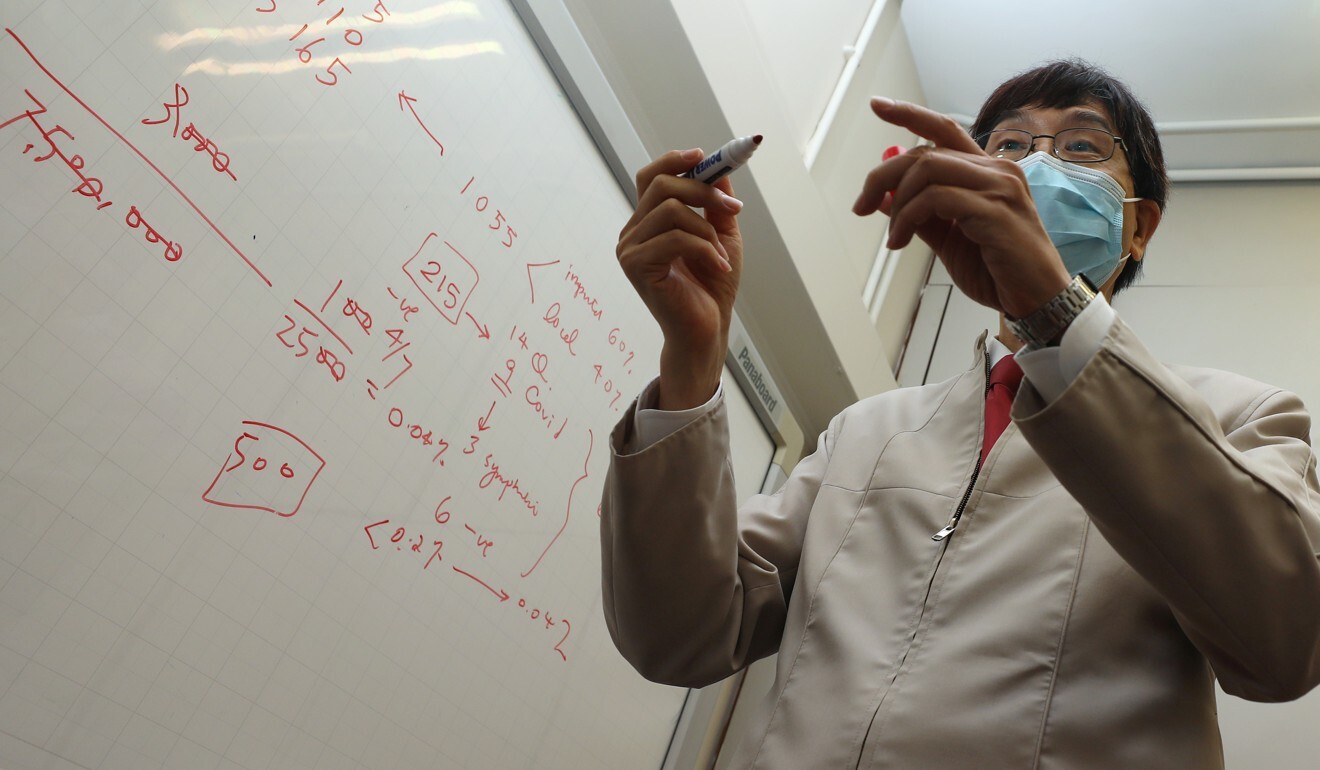
Coronavirus alert: as Hongkongers return from Australia and New Zealand, expert warns of summer surge in Covid-19 cases
- Infectious diseases expert suggests asking travellers to get tested before they fly to Hong Kong
- Pandemic restrictions can be relaxed if people are socially responsible, says HKU’s Yuen Kwok-yung
In an interview with the Post, he said the main issue when it came to easing curbs was whether enough Covid-19 tests had been done, so that health authorities had the best possible picture of the extent of the epidemic and how the virus spread in the city.

About 60 per cent of the confirmed cases were either imported cases of people infected elsewhere, or those related to people with a travel history.
Yuen’s warning of a possible surge of imported cases from the southern hemisphere over the summer coincides with the likely return of Hong Kong residents in Australia and New Zealand, such as students.
Also, when his team screened 500 Hongkongers of different ages about a month after cases emerged in January, it found that none carried antibodies against Covid-19. That meant people in Hong Kong remained at risk to new outbreaks.
Explaining the risk from the southern hemisphere, Yuen said colder temperatures during their winter could help the coronavirus spread more easily there, but those infected might be harder to detect when they arrived in warmer Hong Kong.
“They might display fewer obvious symptoms than they would in winter,” he said.
A previous overseas study on guinea pigs infected with influenza found that in an environment of 5 degrees Celsius, they had a longer period of “virus shedding”, when the virus is detectable and potentially transmissible, than when they were in a warmer environment of 20 degrees Celsius.
122 days of Sars vs Covid-19 – which is worse for Hong Kong’s markets?
If the coronavirus affects people the same way, those infected will be easier to detect in colder climates. In warmer environments, testing is important to identify those who are infected but display fewer symptoms.
In anticipation of a rise in imported cases, Yuen said Hong Kong could require that all arriving travellers underwent a Covid-19 check before travelling, within at least five days before departure.
Currently, non-residents of Hong Kong are not allowed to enter the city. Returning residents are tested after arriving at Hong Kong International Airport and must submit a saliva sample two days before the end of their 14-day mandatory quarantine.
As of May 19, more than 200,000 Covid-19 tests have been performed in Hong Kong, and these include travellers with and without symptoms at the airport, airport staff, and some patients at public hospitals and clinics.
Regional ‘travel bubbles’ seen as way to boost Hong Kong tourism
Yuen felt the government ought to make it easier for people to get tested even if they had only mild symptoms such as a scratchy throat or slight runny nose.
“Now some people feel reluctant to go for a test,” he said. “They need to make an appointment, wait for a doctor in a clinic for one to two hours, then take a specimen bottle back home and return it the next day. Who would come forward for testing?”

02:57
Coronavirus: world hits ‘tragic milestone’ of 5 million Covid-19 cases
To make it less inconvenient, he suggested that government outpatient clinics allowed people who felt only slightly unwell to get tested without having to see a doctor.
Given the low number of new Covid-19 cases, and none at all on more than a dozen days over recent weeks, the city has eased some pandemic restrictions.
Cinemas and beauty parlours have reopened, and restaurants can seat up to eight people at a table, twice as many as before. Religious gatherings of up to half of the original capacity are also allowed.
Last Tuesday, however, health officials said the ban on public gatherings of more than eight people would remain until June 4.
Coronavirus: no new cases in Hong Kong, tally remains at 1,065
Arguing that the restriction on gatherings could be further relaxed, Yuen said: “As long as people wear masks and maintain a distance of 1.5 metres from each other, what is the problem of a gathering?”
He said that even “a gathering of tens of thousands of people” would be fine if people did the right thing in terms of taking precautions and social distancing.
Pointing out that large gatherings were already taking place, he said: “Now when you go to any Chinese-style restaurant, there could be a few hundred people when it is full. During holidays, there are more than 1,000 people in a shopping centre.”

During this year’s pandemic, he and his colleagues at HKU’s Department of Microbiology have published more than a dozen studies related to Covid-19, and are currently developing three types of vaccine for the coronavirus.
But he has also faced criticism, including from doctors in Hong Kong, especially for recommending early on that everyone should wear masks when they leave home, even if they were not ill.
“Some people quoted the World Health Organisation saying that it was not necessary and that we were wasting surgical masks at a time when health care staff did not have enough,” Yuen said.
The WHO later changed its advice on masks, as did several other countries that began telling people to wear masks even if they were not sick.
Others called Yuen a fearmonger for estimating early in the pandemic that 20 per cent of the city’s 7.5 million population could be infected if no preventive measures were taken.
Yuen said he did not care about such criticism, and continued giving his views based on his understanding of the science of infectious diseases.
“I’m 63 years old,” he said. “If a person cannot be candid and speak his mind at the age of 63, it will be really sad.”
Yuen, who meets the media frequently, also explained his choice of a collar-less jacket, white shirt and red necktie for all his appearances.
To those who have wondered if he had only one jacket, and if it was ever washed, he said: “It was my wife’s design. I have four for winter and four for summer.”
As for that trademark red tie, he said he owned a few and his wife was behind that as well. “She likes this colour. She said my face looks too pale,” he said.
Help us understand what you are interested in so that we can improve SCMP and provide a better experience for you. We would like to invite you to take this five-minute survey on how you engage with SCMP and the news.

